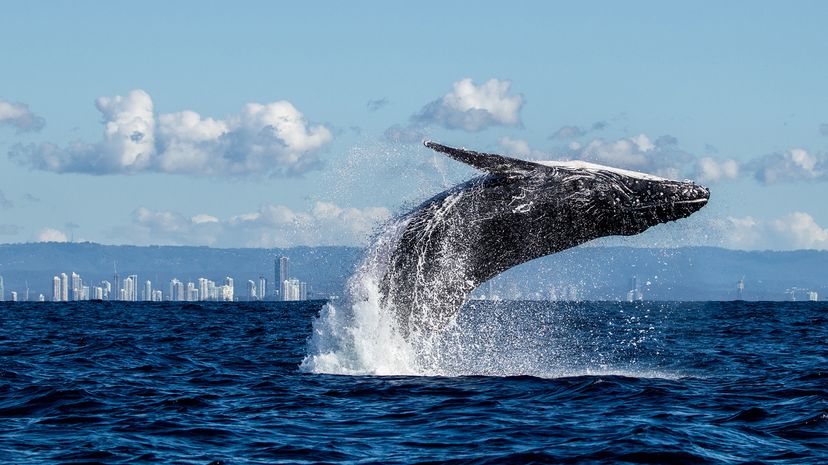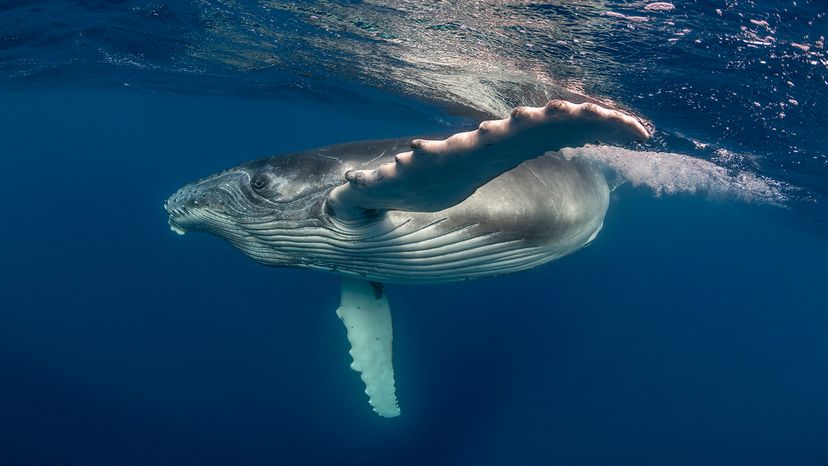
If you’ve ever watched whales surfacing with a dramatic blow from their blowholes, you’ve probably wondered: How often do whales come up for air?
In short, it depends on the species, their activity and how deep they dive.
Advertisement
But one thing is constant. Whales are marine mammals, not fish, and they absolutely must breathe air.

